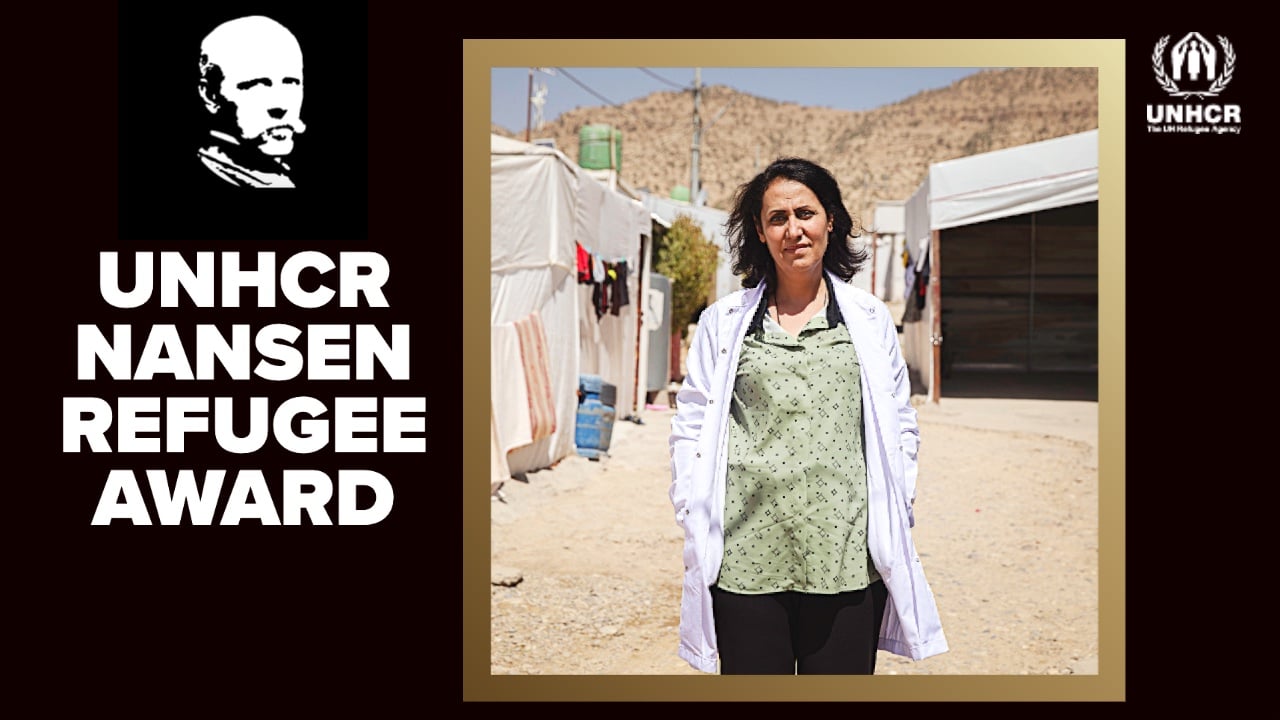UNHCR faces funding shortfall for Iraq operation
UNHCR faces funding shortfall for Iraq operation
Friday, 9 May 2008
GENEVA - Faced with a looming funding shortfall, the UN refugee agency warned today that it could soon be forced to reduce and in some cases to halt a number of assistance programmes for hundreds of thousands of Iraqi refugees unless donor governments provide additional support.
Agency officials told a donor meeting at UNHCR headquarters in Geneva that they lack $127 million required for assistance programmes for uprooted people in and around Iraq through the end of the year.
"We will not be able to help hundreds of thousands of the most vulnerable Iraqi refugees and internally displaced if we do not receive funding for the remainder of 2008," said UN High Commissioner for Refugees António Guterres. "Without this support, the humanitarian crisis we have faced over the past two years may grow even larger."
In January, UNHCR appealed for $261 million for its operations on behalf of some of the 4.7 million people uprooted by the conflict in Iraq. It has so far received $134 million, but urgently requires the remainder to ensure the continuation of direct assistance programmes for many of Iraq's internally displaced people (IDPs) as well as those who have fled elsewhere in the region, including to Syria, Jordan, Iran, Egypt, Lebanon and Turkey. The agency also cares for some 41,000 non-Iraqi refugees in Iraq, including Palestinians, Iranians, Turks and others.
Most of the refugees outside Iraq are in Syria and Jordan and are living in urban areas such as Damascus and Amman. The most vulnerable of these benefit from medical, food and direct financial assistance. Last month in Syria, over 128,000 refugees received food assistance and close to 40,000 received subsidized health care. Many of them are running out of money and finding it increasingly difficult to survive amid a dramatic increase in food prices across the region.
In addition to direct cash assistance to some of the most vulnerable refugees, UNHCR is supporting efforts by governments in the region that are struggling to cope with the huge numbers of Iraqis who have strained local resources and infrastructure, including schools and health systems.
UNHCR has registered more than 280,000 Iraqis in neighbouring states; given health assistance to some 250,000 people and provided educational support in Syria, Jordan and other countries that has enabled some 72,000 refugee children to attend school. This year, the agency has set a target of getting another 70,000 Iraqi refugee children into school, but with the shortfall in funding, many Iraqi children might miss out on education. In Egypt and Lebanon, where most Iraqi refugee children are enrolled in private schools, more than 4,000 children will not receive the education grants that UNHCR offered last year to enable them to continue their education.
Health programmes for Iraqis could be drastically reduced and the provision of some specialised medical interventions might come to a complete halt. By August, UNHCR will not be able to cover all basic health needs of Iraqis, and many serious and chronically ill Iraqis will not be able to receive their monthly medication. Since January, 150,000 Iraqis in Syria and close to 19,000 in Jordan received basic health care assistance. With health facilities severely compromised in many parts of Iraq and many doctors no longer available, a growing number of ailing Iraqis are becoming refugees as they leave home in search of medical care elsewhere.
Distribution programmes in Syria and Jordan, the lifeline of 150,000 refugees who received food aid in 2007-2008, could be reduced, forcing many Iraqis into further destitution and raising the likelihood of higher malnutrition rates and increased child labour.
Omar, a 69-year-old refugee from Baghdad, said he will die a "slow death" if assistance is stopped. He and his family have depended on food and medical assistance since they fled to Syria in 2006, and are paying rent from remittances from Iraq that he says are "our only way to survive."
The funding crisis comes as fuel, food and rent costs have risen dramatically. In November, 5 percent of Iraqi refugees interviewed in a UNHCR-commissioned survey by IPSOS Market Research said that they live on less than US$100 a month. By March, that number had risen to 20 percent.








